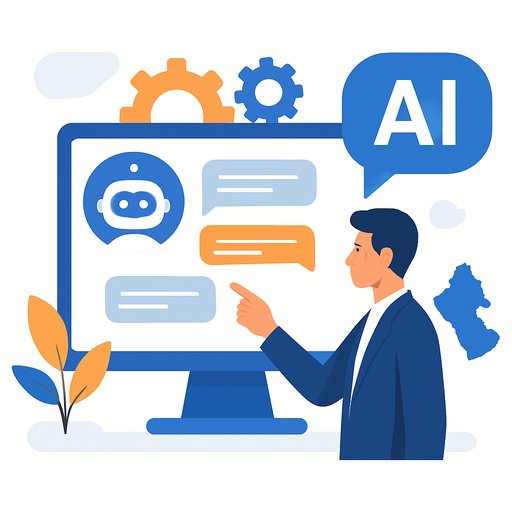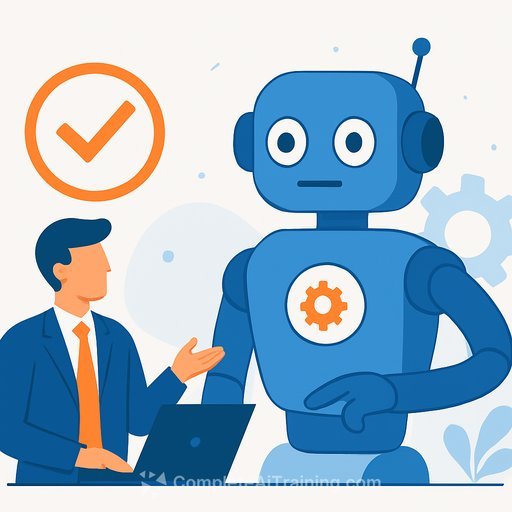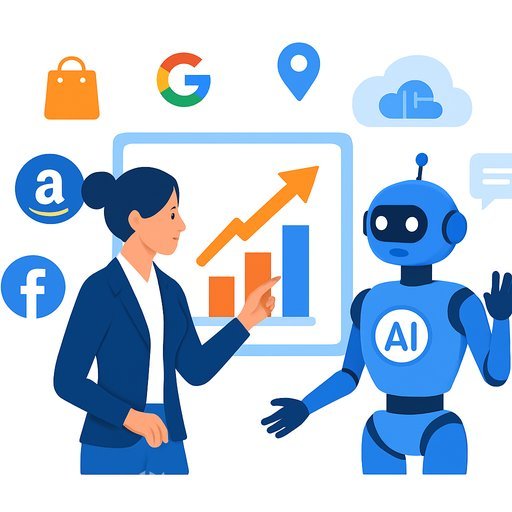Will AI Replace Customer Service Jobs in Egypt? Here’s What to Do in 2025
Short answer: AI won’t fully replace customer service jobs in Egypt by 2025. However, routine tasks like FAQs and data entry are highly exposed to automation. The key is to prioritize reskilling—learning prompt crafting, agent-assist tools, and running WhatsApp FAQ bot pilots, which often return about $3.50 for every $1 invested.
Will AI Replace Customer Service Jobs in Egypt in 2025?
AI won’t completely replace customer service roles, but the frontline is changing fast. Egypt’s National AI Strategy and emerging AI models are pushing intelligent agents into sectors like banking, government services, and Arabic WhatsApp channels. Routine FAQs and data-entry tasks are the easiest to automate.
By 2025, customer service agents will shift from handling simple queries to managing AI coworkers, focusing on complex or emotional cases, and coaching bots. Reskilling is essential now. Short, job-focused training programs that cover AI tools and prompt strategies can help agents transition into higher-value roles.
For example, training in prompt writing, agent-assist workflows, and AI skills relevant to daily work can make a difference. A well-designed Arabic WhatsApp FAQ bot can free up agents to focus on the human problems AI can’t solve.
How AI Is Changing Customer Service Roles in Egypt in 2025
Customer service roles in Egypt are evolving from answering routine questions to supervising AI colleagues. Banks, retailers, and government centers rely on AI for FAQs, Arabic WhatsApp thread triage, and analytics.
Expect more automation of repetitive voice and chat tasks, increased use of sentiment analysis, and multilingual chatbots supporting 24/7 customer service. Humans will handle empathy, edge cases, and AI supervision.
For frontline teams, mastering prompt crafting, conversation summarization, and intent categorization is critical. Treating WhatsApp FAQ bots as force multipliers allows agents to focus on complex, high-value cases AI can’t manage.
Which Customer Service Tasks in Egypt Are at High Risk of Automation?
- Data entry and basic data handling: Highly repetitive and easily automated (ECES AI Risk Index: 8.1%).
- FAQs, email replies, and chatbots: Scripted Q&A and templates are vulnerable to conversational AI.
- Form processing and document verification: Rule-based workflows suited for automation.
- Simple IVR routing and ticket triage: Predictable intent classification and skill-based routing can be automated.
Junior, entry-level tasks are most at risk due to Egypt’s skills mismatch and experience traps. Well-tuned Arabic WhatsApp FAQ bots and conversational IVR can handle routine contacts, freeing agents for more complex issues.
Roles That Will Survive and New Jobs Emerging in Egypt in 2025
Roles that will remain or grow are those requiring human empathy, technical expertise, or a hybrid of both. These include escalation and empathy specialists handling complex cases, cybersecurity and systems architecture experts, and new roles like bot coaches, prompt engineers, and LLM localizers who fine-tune Arabic AI models.
Egypt’s AI Strategy also drives demand for AI observatory analysts, apprenticeship coordinators, and ethical AI auditors who ensure governance across ministries and BPOs.
Key Technologies and Tools in Egyptian Call Centers in 2025
- Conversational AI / WhatsApp bots: Manage routine contacts and multilingual FAQs.
- Agent-assist and speech analytics: Provide real-time prompts, conversation summaries, quality assurance, and coaching.
- IVR and predictive routing: Enable smart call distribution and reduce average handle time.
- RPA and back-office automation: Automate data entry, form processing, and ticket updates.
- Predictive analytics and BI: Support forecasting, personalization, and workforce planning.
- Cloud CCaaS: Offer scalability, remote/hybrid resilience, and omnichannel reach.
These tools help agents focus on complex and emotional cases by handling routine work efficiently.
Economic Impacts & Case Studies Relevant to Egypt in 2025
Egyptian BPOs and banks are already benefiting from AI by reducing handle times and scaling 24/7 support. Globally, 59% of consumers expect AI to reshape interactions within two years, so combining bots with human oversight is key to meeting expectations.
Industry pilots typically return about $3.50 for every $1 invested. However, leaders should plan carefully for data governance and realistic ROI timelines, while investing upfront in training and governance.
Policy and Structural Recommendations for Egypt in 2025
- Expand the AI-powered labor market observatory to guide policy planning.
- Mandate industry–university apprenticeships to address the experience gap.
- Fund targeted reskilling for roles at high risk of automation, enabling workers to move into supervisory, empathy, and bot-coaching jobs.
Egypt’s existing AI observatory, which analyzed over 350,000 job posts, allows for precise interventions instead of broad, unfocused measures.
Practical Steps for Customer Service Employees and Managers in Egypt in 2025
Employees should focus on sharpening human skills AI can’t replicate, like empathy and active listening. Role-playing and emotional intelligence exercises help prepare for complex interactions.
Managers should pilot small WhatsApp FAQ bots, track how many queries get deflected, and redeploy saved time toward coaching, escalation teams, and prompt-tuning workshops.
A 90‑Day Upskill Plan for Customer Service Workers in Egypt in 2025
- Month 1: Observe current workflows and enroll in short, job-focused AI courses.
- Month 2: Practice new AI tools and hybrid human-AI workflows.
- Month 3: Set SMART goals, create a simple KPI scorecard, and document small wins.
How Employers and BPOs in Egypt Should Measure Success in 2025
Success should be measured by combining traditional customer experience metrics with new automation indicators. Equally important is tracking agent experience: emotional load, coaching frequency, and trust in AI tools.
Conclusion & Resources for Readers in Egypt in 2025
AI won’t replace Egypt’s customer service workforce wholesale by 2025 but will shift value toward handling complex, emotional, and supervisory work. Routine FAQs and bulk tasks will increasingly be automated.
Practical next steps include running localized pilots, measuring deflection and first-contact resolution, and linking automation gains to paid reskilling programs.
For those interested in AI courses designed for customer support roles, Complete AI Training offers tailored programs to build practical AI skills.
Frequently Asked Questions
Will AI replace customer service jobs in Egypt in 2025?
No, not completely. Routine and high-volume tasks are likely to be automated, but human roles will evolve toward supervising AI, handling complex cases, and coaching bots.
Which customer service tasks in Egypt are at highest risk of automation?
Tasks like data entry, scripted FAQs, email replies, form processing, document verification, and simple call routing are most vulnerable.
What roles will survive or emerge, and how should Egyptian workers reskill?
Roles involving empathy, escalation, cybersecurity, and technical bot coaching will grow. Reskill by focusing on AI tools, prompt engineering, and hybrid workflows.
What technologies and KPIs should Egyptian contact centers prioritize in 2025?
Prioritize conversational AI, agent-assist, speech analytics, RPA, predictive routing, and cloud CCaaS. Measure balanced KPIs including agent experience.
What should policymakers and managers do to protect jobs while adopting AI?
Policymakers should scale AI labor observatories, mandate apprenticeships, and fund reskilling. Managers should run small automation pilots paired with guaranteed retraining.
Your membership also unlocks:





